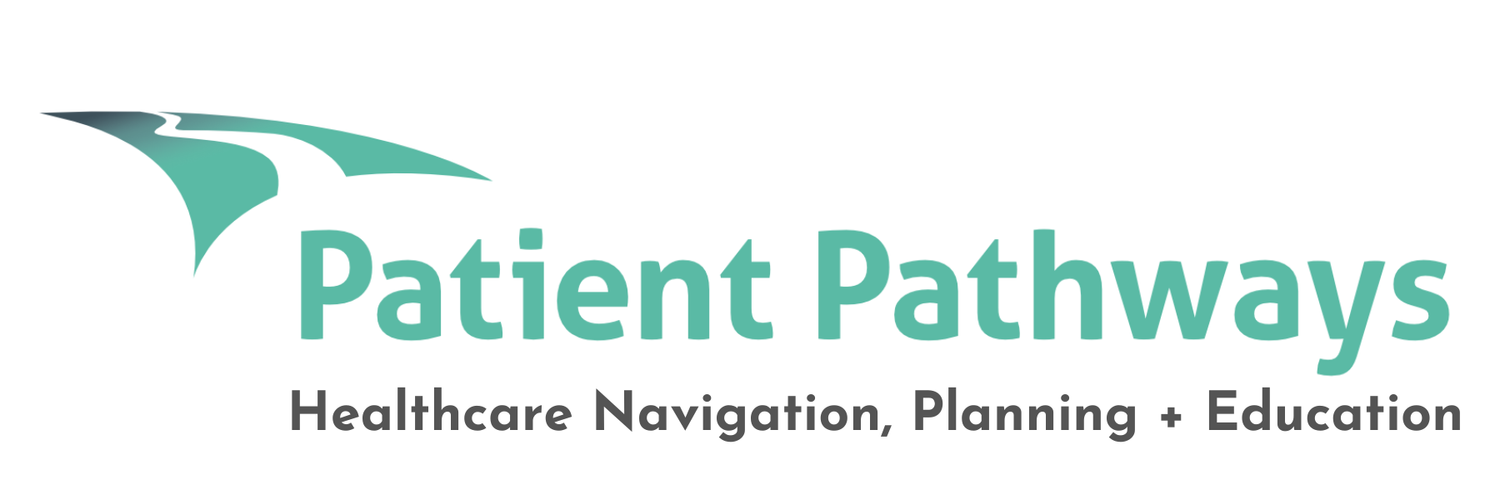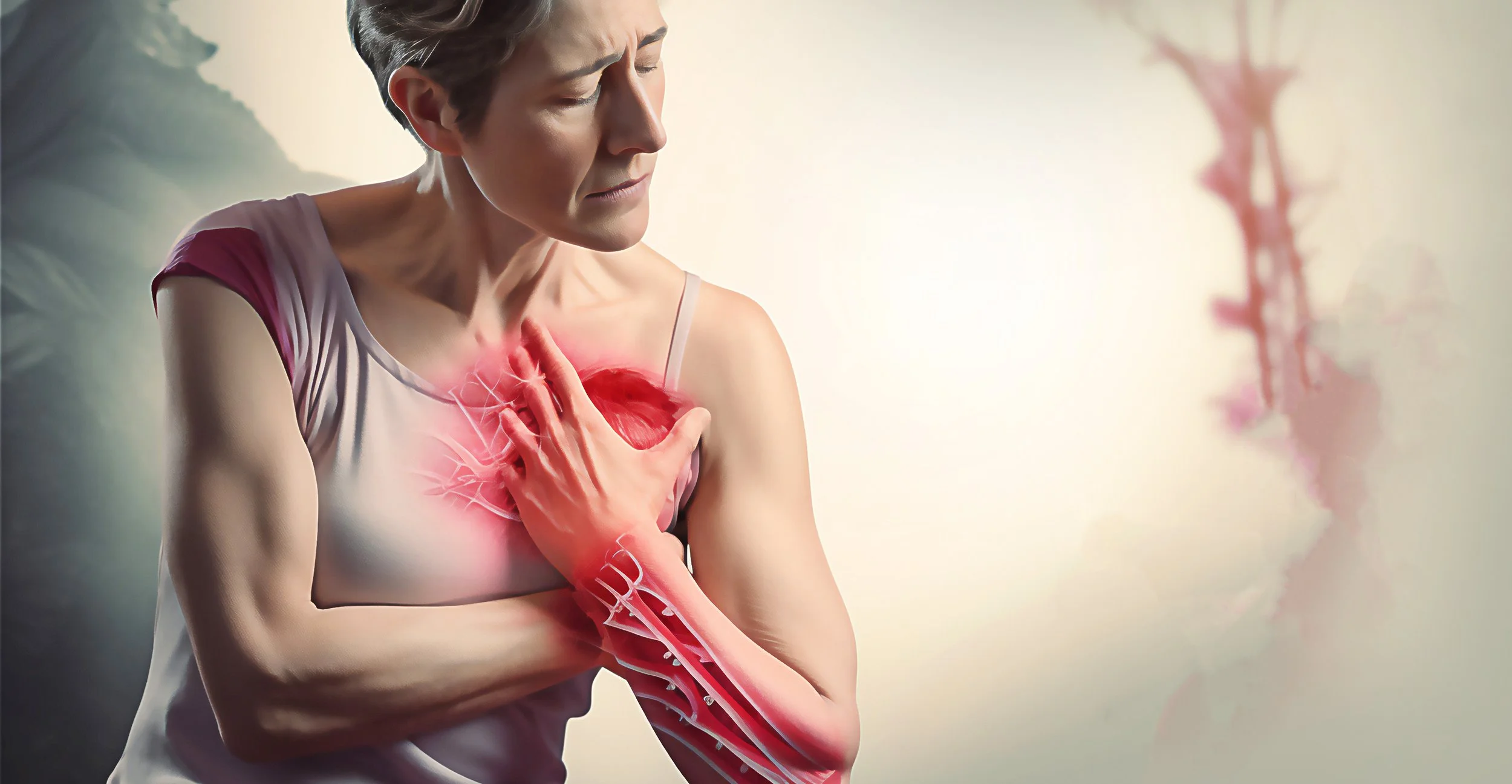The Silent Threat of Women's Heart Disease
A Heart-to-Heart with Carolyn Thomas
In my experience, cancer often steals the spotlight, but heart disease—especially in women—deserves far more attention than it receives.
Did you know it's the number one cause of death for both men and women, with most people living with it for years or even decades? Yet, it's women who frequently find themselves undiagnosed, misdiagnosed, undertreated, and under-researched.
According to the acclaimed documentary "A Typical Heart,", the sobering facts are that heart disease claims more women's lives than all respiratory diseases and cancers combined, and one in four women will succumb to cardiovascular disease.
In 2024, I had the honour of hosting Carolyn Thomas, author, founder of MyHeartSisters.org and a heart attack survivor, in one of our wonderful online workshops.
Carolyn's Story: A Wake-Up Call
Carolyn's journey started on a regular morning walk when she suddenly felt intense chest pain, nausea, sweating, and concerning pain in her left arm. Even with these typical symptoms, she chose to ignore them, thinking, "This better not be a heart attack. I don't have time for that. Maybe tomorrow, but definitely not today."
Finally her concern won, and she stopped at a nearby hospital where her heart tests came back normal. (Troponin levels, which measure heart attack indicators, are often lower in women and frequently overlooked.) Diagnosed with acid reflux, and embarrassed by a nurse's reprimand, Carolyn didn't seek further treatment for two weeks.
Even as symptoms persisted during a cross-country flight, Carolyn remained in denial. It wasn't until the next morning, back home again, that she returned to the hospital. This time, a cardiologist diagnosed significant heart disease. In the catheterization lab, they discovered a blocked left anterior descending artery, which they promptly treated with a stent.
This experience ignited Carolyn's passion for learning and advocacy. After attending the Mayo Clinic's Women's Heart Science Symposium, she became determined to spread awareness about women's tendency to downplay symptoms and delay seeking treatment.
Below is some of the knowledge Carolyn recently shared with us.
Why Women Delay Treatment
Women often put their health last, prioritizing:
Family, especially children
Our home
Work and work relationships
Pets (who are more vulnerable and more empathetic)
Spouses, and then, very last ...
Ourselves
Women's Heart Attack Symptoms: Beyond the Obvious
While classic symptoms like chest pain, nausea, and left arm pain can occur, women often experience:
Pain in the neck and jaw
Bone-deep fatigue
Denial (the most common symptom)
Recent research has also linked difficult pregnancies to early heart disease. Pregnancy complications that increase future heart disease risk include:
Pre-eclampsia (spikes in blood pressure, vision changes, severe headaches and water retention)
Gestational diabetes
A full-term baby with a low birth weight
If you experience cardiac symptoms:
Tell someone immediately
Call a nursing hotline or a friend
Bring an advocate to the hospital
Don't be afraid to make a fuss
Use phrases like:
"I think I'm having a heart attack"
"I know my body, and something is terribly wrong"
"I know my wife/friend/sister, and something is very wrong"
Avoid downplaying symptoms or apologizing—a tendency more common in women than men.
Building a Support Network
Before a health crisis strikes:
Cultivate diverse friendships and relationships
Be a good listener and supporter to others
Join community groups or seniors' centres
Reach out when you need support
Accept offers of help
Offer specific assistance to others in need
Safety Measures for Those Living Alone
Use a smartwatch that can detect falls or irregular heart rhythms and call 911
Wear a medical alarm system at all times, even in the shower
A Call to Action
As a former cardiac nurse, I thought I knew a lot about heart disease, however, this workshop opened my eyes in new ways to the complexities of women's heart health.
I'd love to hear what you've learned, too, and any questions you may still have. My team at Patient Pathways is here to support you — please don't hesitate to reach out for a chat.
Remember, knowledge is power when it comes to heart health. By staying informed and vigilant, we can work together to reduce the impact of heart disease on women's lives.
Resources + Links
MyHeartSisters.org - Carolyn Thomas's website offers a wealth of accessible information on women and heart disease. The site features "A Typical Heart," a compelling BC-produced documentary that explores the disparities in diagnosis, treatment, and outcomes between male and female heart patients.
"Just a Little Heart Attack" - This short film, created by the American Heart Association's Go Red For Women movement and starring Emmy-nominated actress Elizabeth Banks, aims to educate women about heart disease realities. It portrays one woman's experience of ignoring her symptoms, encouraging viewers to prioritize their heart health.
Cardiac Oncology Clinic at VGH - For those undergoing cancer treatments, this clinic offers evaluation and monitoring due to the close link between cancer therapies and heart disease.
Ms. Understood: Heart & Stroke Foundation 2018 Report - This report highlights crucial statistics on women's heart health in Canada, including the prevalence of heart disease as a leading cause of premature death and the underdiagnosis of heart attack signs in women.
WomenHeart - Champions of Heart - A global organization providing advocacy and support for women diagnosed with heart disease through education and training programs.
Mayo Clinic: Statins for Women - High levels of cholesterol is a silent disorder that increases the risk for heart disease and stroke, however, statins can reduce these risks by about 20%. This comprehensive article discusses the use of statins in women.



